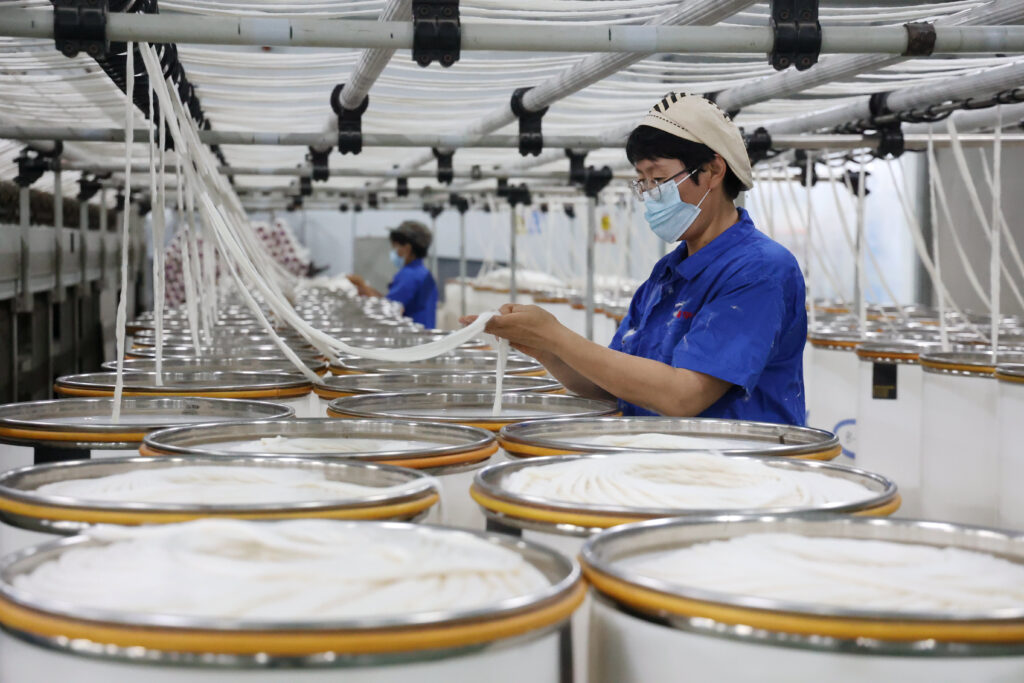
Indonesia's plan to impose tariffs on a range of Chinese products in response to alleged industrial overcapacity could harm the country's economy, decreasing the competitiveness of its exports, increasing production costs and consumer prices and risking retaliation from China. A better approach for economic security could lie in utilising multilateral trade agreements and institutions, maintaining economic openness and learning from Australia's handling of China's sanctions.
Concerns over China’s alleged industrial overcapacity have led countries to double down on their tariffs on Beijing. Using the US tariff as an example, the Indonesian government also planned to impose up to 200 per cent tariffs on a range of Chinese products, including but not limited to textiles and ceramics.
The tariffs were intended to be safeguards and anti-dumping measures to prevent job losses for businesses affected by the influx of cheap Chinese goods. While investigations have not yet concluded whether China’s dumping directly causes the losses, sensitivity surrounding the issue might extend the tariff beyond targeted products.
Despite its political appeal, the across-the-board tariff on China will only make the Indonesian economy less secure. The collateral damage of tariffs will go beyond trade with Beijing. It will diminish the competitiveness of Indonesia’s exports in other countries, hurting the middle class and risking retaliation. This will deteriorate the trade openness that Indonesia needs to mitigate geopolitical risks to the economy.
China remains the number one source of Indonesia’s manufacturing input, which Indonesian firms rely heavily on to produce goods for exports and domestic consumption. China accounted for over US$18.7 million, or 26.4 per cent, of Indonesia’s intermediary goods imports in 2021.
With affordable inputs, Indonesia reaps greater benefits by exporting products to other markets. The United States, for instance, became the number one source of Indonesia’s trade surplus. The surplus from the United States surged from US$8.58 billion in 2019 to US$11.96 billion in 2023, with electronics products that Indonesia builds partly with China’s components being the most significant contributor.
The ability to secure affordable imported inputs has consistently correlated with the increasing productivity and competitiveness of Indonesia’s exports. On the other hand, substituting China’s goods with less affordable input locally or internationally will increase the production cost and consumer prices, and eventually reduce Indonesia’s competitiveness.
An increase in consumer prices would harm not only foreign consumers but also Indonesians by increasing their household spending. A Peterson Institute for International Economics estimate on the US case offers an example for Indonesia. The 60 per cent across-the-board tariff that then US president Donald Trump proposed to place on China will add US$1700 in taxes for middle-income families annually. Extended tariffs might backfire and hurt the lower and middle classes that the government wanted to protect.
Not only is the proposed tariff harmful, but it has been justified with the wrong narrative about the trade deficit. Though China is currently the largest source of Indonesia’s trade deficit, Indonesia can balance this with other exports where it maintains a competitive advantage.
Indonesia’s trade balance with China has consistently improved, from US$16.9 million in 2019 to US$2.4 million in 2021. Jakarta even managed to secure a surplus for the first time in years with US$2.05 million in 2023, with minerals, iron and steel exports contributing immensely.
While it seems counterfactual to politicians, running a deficit in certain areas with China is necessary to retain Indonesia’s competitiveness in many other sectors and international markets. Tariffs can become an attempt to sabotage an area where Indonesia does not retain a competitive advantage.
Some argue that tariffs could increase competitiveness by spurring China’s investment in Indonesia’s textile industry. Jakarta has successfully implemented this strategy through downstreaming by forcing China’s investment in domestic nickel processing. But unlike nickel, on which Indonesia retains a global monopoly, China has many alternatives to export its manufacturing products.
In the worst case, China could retaliate against Indonesia’s tariffs. As signalled by remarks from China’s Foreign Ministry, China might view Indonesia’s tariff as a violation of its free trade commitments, as ruled in ASEAN–China free trade agreement, which Indonesia recently renegotiated.
With no guarantee of access to broader US markets, deteriorating trade relations with China will only sideline Indonesia from global trade and diminish its leverage as an alternative partner amid the US–China de-risking. An isolated Indonesia will only find narrower space to hedge when future economic shocks from geopolitical conflict occur.
Instead of tariffs, the country’s economic security could be better served by harnessing multilateral trade agreements and institutions. Indonesia could consider joining the Multi-Party Interim Appeal Arbitration to circumvent the deadlock in the Appellate Body of the World Trade Organization, in which other anti-dumping and countervailing cases involving China are currently being discussed. Indonesia can also find common ground regarding the overcapacity issue in future negotiations of ASEAN–China free trade agreement and the Regional Comprehensive Economic Partnership, of which China is a member.
Maintaining Indonesia’s economic openness is not only significant diplomatically. It also serves a strategic purpose by maintaining economic security domestically, through affordable consumer goods and competitive exporters, and internationally, through wider space to manoeuvre and manage trade disruption.
Australia’s handling of China’s sanctions offers valuable lessons. Economic openness is strategically beneficial in mitigating supply chain disruptions by finding alternative economic partners.
Despite its political appeal, an across-the-board tariff on China would diminish Indonesia’s export competitiveness and economic performance, harming the domestic consumers and firms that the government intended to protect. Finding common ground through existing trade agreements and multilateral trade institutions remains a better alternative, not only for improving economic security, but also enhancing Indonesia’s reputation as the driver of economic openness in the region.
Source: East Asia Forum
Share: